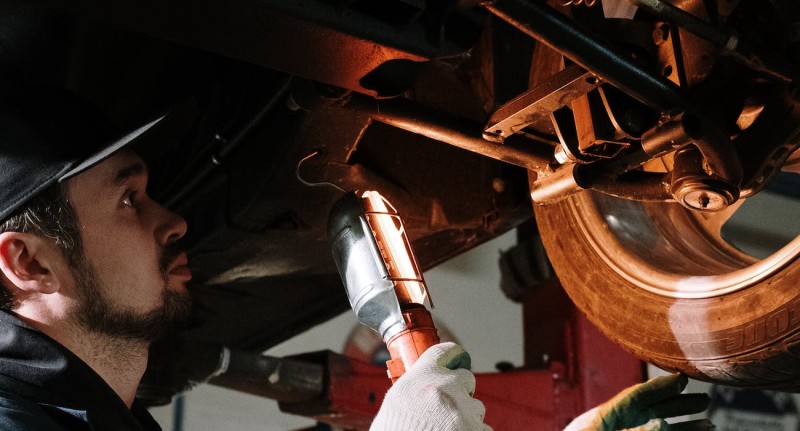Vehicle repairs can be a significant expense and time-consuming process. However, there are several strategies that vehicle owners can employ to save both time and money. Here we will discuss about the practical ways to minimize the costs and time involved in vehicle maintenance and repairs.
1. Regular Maintenance
Prevention is better than cure. Regularly servicing your vehicle can prevent major repairs. This includes changing the oil, checking fluid levels, and inspecting brakes and tires. Adhering to the manufacturer's maintenance schedule can save you from expensive breakdowns.
2. Educate Yourself
Knowledge is power. Understanding the basics of how your vehicle works can help you identify problems early and communicate more effectively with mechanics. Simple tasks like changing wiper blades or air filters can be done at home with minimal tools and skills.
3. Choose the Right Mechanic
Trust is key. Look for a reputable, certified mechanic. Recommendations from friends or online reviews can be helpful. A good mechanic will not only repair your vehicle but can also provide valuable advice on maintenance and future care.
4. Get Multiple Quotes
Shop around. If you’re facing a major repair, get quotes from several mechanics. Prices can vary significantly, and you may find a better deal or a more efficient solution elsewhere.
5. Use Quality Parts
Quality pays off. Using cheap, low-quality parts can lead to more frequent repairs. While they may be more expensive upfront, high-quality or OEM (Original Equipment Manufacturer) parts can offer better performance and longer life.
6. DIY Simple Repairs
Do it yourself. With numerous tutorials available online, you can handle some simple repairs yourself. Tasks like changing bulbs, fuses, or even brake pads can be done with basic tools and a bit of patience.
7. Monitor and Address Issues Promptly
Act quickly. Ignoring small issues can lead to bigger, more expensive problems. Addressing problems as they arise can save time and prevent further damage to your vehicle.
8. Consider Aftermarket Parts
Balance cost and quality. Aftermarket parts are often cheaper than OEM parts and can be of similar quality. However, ensure they meet the required standards and won’t affect your vehicle’s warranty.
9. Use Technology
Embrace innovations. Modern technology like OBD (On-Board Diagnostics) scanners can help diagnose problems in your vehicle. Using such tools can save diagnostic time and pinpoint specific issues.
10. Maintain a Vehicle Fund
Plan financially. Set aside a small amount of money regularly for vehicle maintenance and repairs. This can prevent financial stress when unexpected repairs arise.
11. Utilize Warranty and Insurance Wisely
Make the most of coverage. Understand the details of your vehicle's warranty and insurance policy. Regular maintenance can keep your warranty valid, and knowing what your insurance covers can save you significant expenses in the case of accidents or specific repairs.
12. Keep Good Records
Documentation is invaluable. Maintain a detailed log of all the maintenance and repairs done on your vehicle. This record not only helps in keeping track of upcoming services but can also increase the resale value of your car. It provides proof of proper maintenance to potential buyers.
13. Be Proactive with Tires
Tires are foundational. Regularly check and maintain tire pressure and alignment. This not only extends the life of your tires, saving money in the long run, but also improves fuel efficiency and safety.
14. Learn to Interpret Warning Lights
Decode your dashboard. Familiarize yourself with the meaning of different warning lights on your vehicle’s dashboard. Early intervention upon seeing these lights can prevent more serious and costly problems.
15. Join a Car Club or Forum
Becoming a member of a car club or an online forum related to your vehicle model can be immensely beneficial. These platforms offer a wealth of information, from maintenance tips to recommendations for mechanics and parts.
16. Consider Refurbished Parts
For certain repairs, refurbished parts can be a cost-effective alternative to new ones. Ensure that they come with some warranty and are from a reputable source.
17. Align with Technology Trends
Stay updated. As vehicles become more technologically advanced, staying informed about the latest trends and updates can help you manage and understand potential issues better. For example, electric and hybrid vehicles have different maintenance needs compared to traditional vehicles.
18. Negotiate with Mechanics
Communication is a skill. Don’t hesitate to discuss the pricing and necessity of repairs with your mechanic. A good mechanic will explain the reason for the repairs and might even offer various options based on your budget.
19. Utilize Online Resources for Parts
In today's digital age, you have the option to get your vehicle parts shipped directly to your home or mechanic. Online retailers often offer a wide range of parts at competitive prices. This not only saves you time but also allows you to compare prices and find the best deals. Additionally, for those who prefer DIY repairs, having parts shipped directly can streamline the repair process significantly.
Conclusion:
In summary, saving on vehicle repairs is about being informed, proactive, and practical. It involves a combination of regular maintenance, knowledge enhancement, strategic choices, and effective communication. By incorporating these additional strategies, vehicle owners can achieve even greater efficiency in managing and reducing the time and cost associated with vehicle repairs, leading to a more satisfying and financially sound vehicle ownership experience.









